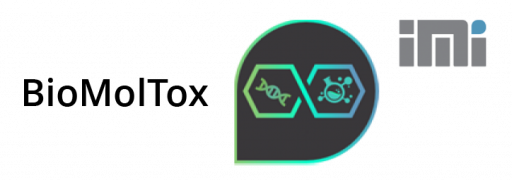Authors: Katarina Matković, Andreja Jurič, Ivana Jakovljević, Luka Kazensky, Mirta Milić, Vilena Kašuba, Silvije Davila, Gordana Pehnec, Irena Brčić Karačonji, Ante Cvitković, Pascal Wild, Irina Guseva Canu, Nancy B. Hopf, Goran Gajski, Marko Gerić AbstractAir pollution, a major global issue, comprises various solid and gaseous pollutants in urban environments, including particulate matter (PM) and volatile organic …
Continue reading Evaluating air pollution and BTEX exposure effects on DNA damage: A human biomonitoring study in Zagreb, Croatia
Author:jmadunic
Assessing the Potential Synergistic/Antagonistic Effects of Citrinin and Cannabidiol on SH-SY5Y, HepG2, HEK293 Cell Lines, and Human Lymphocytes
Authors: Dubravka Rašić, Antonio Zandona, Maja Katalinić, Martin Češi, Nevenka Kopjar AbstractThe increasing use of Cannabis sativa products for medicinal, dietary, and recreational purposes has raised concerns about mycotoxin contamination in cannabis and hemp. Mycotoxins persist in these products’ post-processing, posing health risks via multiple exposure routes. This study investigated cytotoxic and genotoxic interactions between cannabidiol (CBD) and …
Continue reading Assessing the Potential Synergistic/Antagonistic Effects of Citrinin and Cannabidiol on SH-SY5Y, HepG2, HEK293 Cell Lines, and Human Lymphocytes
Apex carnivores coping with metal(loid) pollution and oxidative stress: Biological and environmental drivers of variation in kidney of European brown bear
Authors: Maja Lazarus, Agnieszka Sergiel, Tatjana Orct, Maja Ferenčaković, Blanka Tariba Lovaković, Suzana Žunec, Dubravka Rašić, Ena Oster, Slaven Reljić, Joanna Macur, Đuro Huber AbstractInduction of oxidative stress and the associated lipid peroxidation is a prevalent mechanism through which certain metal(loid)s exert nephrotoxic effects in mammals. Research on the toxic impacts of metal(loid)s in free-ranging large …
Continue reading Apex carnivores coping with metal(loid) pollution and oxidative stress: Biological and environmental drivers of variation in kidney of European brown bear
Domoic Acid: A Review of Its Cytogenotoxicity Within the One Health Approach
Authors: Goran Gajski, Marko Gerić, Ana Baričević, Mirta Smodlaka Tanković AbstractIn this review, we toxicologically assessed the naturally occurring toxin domoic acid. We used the One Health approach because the impact of domoic acid is potentiated by climate change and water pollution on one side, and reflected in animal health, food security, human diet, and human …
Continue reading Domoic Acid: A Review of Its Cytogenotoxicity Within the One Health Approach
Combinatory Effect of Nitroxoline and Gentamicin in the Control of Uropathogenic Enterococci Infections
Authors: Davorka Repac Antić, Bruno Kovač, Marko Kolenc, Irena Brčić Karačonji, Ivana Gobin, Mirna Petković Didović AbstractEnterococcus faecalis, responsible for a majority of human and nosocomial enterococcal infections, is intrinsically resistant to aminoglycoside antibiotics (such as gentamicin, GEN), which must be used in a combined therapy to be effective. Nitroxoline (NTX) is an old antibiotic, …
Continue reading Combinatory Effect of Nitroxoline and Gentamicin in the Control of Uropathogenic Enterococci Infections
Effects of Strawberry Tree (Arbutus unedo L.) Aqueous Leaf Extract and Arbutin on PK-15 and HepG2 Cells
Authors: Vesna Benković*, Ines Tkalčec, Anica Knežević, Karlo Jurica, Fabijan Knežević, Irena Brčić Karačonji, Nevenka Kopjar AbstractThe antioxidant properties of the leaves of the Mediterranean strawberry tree (Arbutus unedo L.) are mainly attributed to the main bioactive compound, the phenolic glycoside arbutin. In this study, the safety profile of strawberry tree aqueous leaf extract (STE) and …
Continue reading Effects of Strawberry Tree (Arbutus unedo L.) Aqueous Leaf Extract and Arbutin on PK-15 and HepG2 Cells
Effects of Strawberry Tree Water Leaf Extract and Arbutin on Biochemical Markers and DNA Integrity in Brain Cells of Lewis Rats
Authors: Vesna Benković*, Dora Vuković, Iva Đelatić, Vanja Popović, Karlo Jurica, Fabijan Knežević, Irena Brčić Karačonji, Ana Lucić Vrdoljak, Nevenka Kopjar AbstractThere is growing evidence that arbutin and plant extracts rich in arbutin, such as extracts of the strawberry tree (Arbutus unedo L.), exert a range of beneficial effects, including cyto- and genoprotective properties. This study …
Continue reading Effects of Strawberry Tree Water Leaf Extract and Arbutin on Biochemical Markers and DNA Integrity in Brain Cells of Lewis Rats
Hydra for 21st Century—A Fine Model in Freshwater Research
Authors: Goran Kovačević, Petra Korać, Davor Želježić, Mirela Sertić Perić, Petra Peharec Štefanić, Damir Sirovina, Maja Novosel, Sanja Gottstein AbstractHydra is known for its natural occurrence, anatomical simplicity, intricate physiology, regenerative capacity, and ease of maintenance and manipulation in laboratory environments. It has proven to be a valuable model organism in various disciplines. Its applications range from …
Continue reading Hydra for 21st Century—A Fine Model in Freshwater Research
Comparison of DNA damage in fresh and frozen blood samples: implications for the comet assay in human biomonitoring studies
Authors: Katarina Matković, Marko Gerić, Luka Kazensky, Mirta Milić, Vilena Kašuba, Ante Cvitković, Mandica Sanković, Antun Šumanovac, Peter Møller, Goran Gajski AbstractThe use of the comet assay in large biomonitoring studies may present logistical and technical challenges because of the processing of numerous samples. Proper sample preservation becomes imperative to prevent spurious DNA breakage. Previous research …
Continue reading Comparison of DNA damage in fresh and frozen blood samples: implications for the comet assay in human biomonitoring studies
